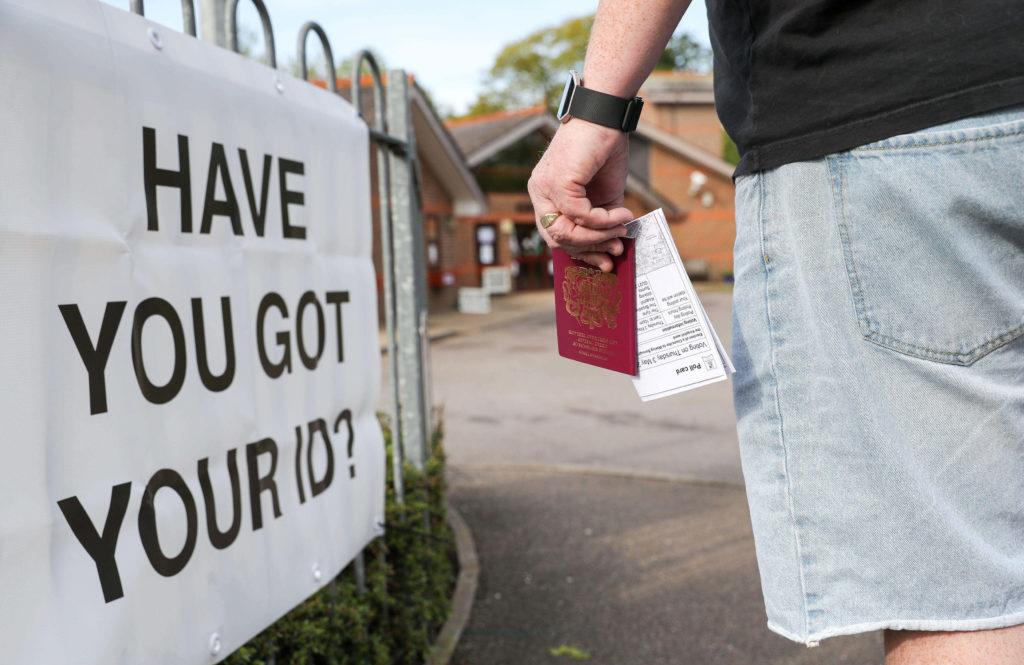The chief of the elections watchdog has warned the UK is at risk of a “failed” election.
John Pullinger, the chairman of the Electoral Commission, told the The House magazine that MPs must begin an urgent overhaul of electoral law, citing issues with Voter ID, foreign interference as well as foreign donations to parties.
If MPs delay, he added, “the risk of something bad happening is going to be significantly greater”.
Pressed further on something “bad” might mean, he said: “[That] would be an election failed.”


Pullinger’s warning to ministers and MPs comes as peers warn the government that changes to voter ID requirements are needed to stop people being locked out at the next election.
The House of Lords constitution committee has written to local government minister Simon Hoare to say that awareness of rules is “unacceptably low”.
Voter ID risks making Britain’s democracy less accessible to people with disabilities
The cross-party grouping also called for more forms of ID, such as rail passes, to be permitted.
The letter states: “The decision to introduce multiple changes to the electoral system simultaneously or in quick succession has placed a significant burden on a system with limited resilience and has introduced increased risk to the successful delivery of elections.
It adds: “Scheduling the next general election ahead of the May 2024 local elections or combining a general election with the local elections could exacerbate this risk”.
In his interview with The House, Electoral Commission chief John Pullinger revealed he had spoken to 200 local authority chief executives who maintained they were under “very serious financial and staffing pressures”.
He said: “How worried should we be coming up to the next general election? A lot of them are under very serious financial and staffing pressures but they all have a personal responsibility as the returning officer for the locality to deliver this and they will pull out all the stops to do it.”
“They will have to pull things away from other services”, he added,
He continued: “You just see something being stretched and stretched and stretched and I think we need collectively to worry about that. We are very fortunate in the UK that the public has very high levels of confidence in elections but if something doesn’t go quite right, it risks damaging that confidence.
“Everybody involved is determined that doesn’t happen but it’s the implications of trying to rise to that challenge when it’s getting harder and harder.”
He has called on the government to allow a range of ID types in future polls, saying: “There’s a real question of whether they’ve got the balance right. The NHS card, for example, why wouldn’t you? I know a number of members of the police forces; a warrant card, surely, but it’s not on the list… I think it is a pity.”
Next election could face ‘serious disruption’ because of voter ID, experts warn
An Electoral Commission report, published in September, urged ministers to expand accessibility after voter ID rules prevented some from participating in May’s local elections.
The report looked at data from 18 local authorities and found that the policy appears to be disproportionately hitting voters in certain marginalised groups.
Voters in deprived areas were found to be more likely to be blocked from voting than those in wealthier areas.
It also said that some people found it harder to vote in May because of the new rules, including disabled people, the unemployed, younger people and those from ethnic minority communities.
The Electoral Commission has also consistently said that the true figure for those denied a chance to vote by ID rules will be higher than recorded, as some of those who wanted to vote at polling stations might have turned away after reading the requirements at the entrance but were not formally noted.
In his interview with The House, Pullinger also insisted that his agency needs more powers to protect UK elections from foreign interference.
The Electoral Commission chief said he had written to security minister Tom Tugendhat earlier this year asking for such measures.
But he revealed a response was not forthcoming for more than six months, adding: “I was frustrated. I wasn’t getting any response at one stage”.
Politics.co.uk is the UK’s leading digital-only political website, providing comprehensive coverage of UK politics. Subscribe to our daily newsletter here.












